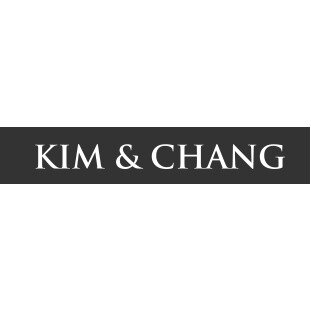Best Debt Capital Markets Lawyers in South Korea
Share your needs with us, get contacted by law firms.
Free. Takes 2 min.
Or refine your search by selecting a city:
List of the best lawyers in South Korea
About Debt Capital Markets Law in South Korea
Debt Capital Markets (DCM) in South Korea form an essential part of the country’s financial system. DCM refers to the market through which entities such as corporations, banks, and the government raise funds by issuing debt instruments like bonds and notes to investors. South Korea’s debt market is one of the largest in Asia and plays a crucial role in funding major infrastructure projects, corporate growth, and public sector initiatives. The market is regulated closely to ensure transparency, investor protection, and market stability, making it necessary for participants to understand the specific legal framework that applies to bond issuances, disclosure requirements, and regulatory approvals.
Why You May Need a Lawyer
Legal assistance is often essential in navigating the complexities of Debt Capital Markets in South Korea due to several reasons. Some of the most common situations that may require legal help include:
- Structuring and issuing bonds, debentures, or other debt instruments
- Ensuring compliance with securities regulations and disclosure obligations
- Negotiating with underwriters, trustees, and investors
- Advising on cross-border offerings or listings on Korean or international exchanges
- Staying updated on changes in local regulations and market practices
- Handling disputes or resolving regulatory investigations related to debt offerings
Given the high level of regulatory scrutiny and the significant sums often involved, seeking advice from a lawyer who understands South Korea’s DCM environment can help minimize risks and ensure smooth execution of transactions.
Local Laws Overview
South Korea’s Debt Capital Markets are governed by several key statutes and regulations. Prominent among these is the Financial Investment Services and Capital Markets Act (FSCMA), which sets out the rules for issuing, trading, and disclosing information about securities, including debt instruments. The Financial Services Commission (FSC) and the Financial Supervisory Service (FSS) act as principal regulators, overseeing compliance and market conduct.
Issuers must submit disclosure documents, such as securities registration statements, when offering debt securities to the public. Certain private placements can be exempt from some disclosure obligations depending on the size and type of offering. Foreign issuers must comply with additional requirements, such as obtaining approval from Korean regulators or appointing a local agent.
Other laws impacting DCM include the Commercial Act, which regulates corporate governance for issuers, and taxation laws that affect interest payments to both domestic and foreign investors. The Korea Exchange (KRX) also imposes listing requirements for public offerings of debt securities.
Frequently Asked Questions
What is included under Debt Capital Markets in South Korea?
Debt Capital Markets in South Korea include offerings of debt securities such as corporate bonds, government and municipal bonds, structured notes, and commercial paper, generally aimed at raising capital from institutional and individual investors.
What are the main regulators of Debt Capital Markets in South Korea?
The Financial Services Commission (FSC) is the primary regulatory authority, with day-to-day supervision carried out by the Financial Supervisory Service (FSS). The Korea Exchange (KRX) oversees the listing and trading of bonds.
Is it necessary to obtain regulatory approval to issue bonds in South Korea?
For most public offerings, issuers are required to file a securities registration statement with the relevant authorities. Some private offerings or small-scale placements may be exempt subject to conditions.
Can foreign companies issue bonds in South Korea?
Yes, foreign companies can issue bonds in South Korea, but they must comply with additional regulatory requirements which may include appointing a Korean agent and seeking approval from the relevant authorities.
What are the key disclosure requirements?
Issuers must provide a detailed securities registration statement containing information on their business, financials, terms of the offering, and associated risks. Ongoing disclosure is also required for listed instruments.
How long does a typical bond issuance take?
The timeline varies depending on the complexity of the offering and regulatory review, but a standard domestic issuance may take several weeks to a few months from planning to completion.
Are there restrictions on who can invest in debt securities?
Generally, both institutional and retail investors can participate in the market, but certain offerings may target only qualified institutional buyers to comply with exemption criteria.
What happens if there is a default on a bond issued in South Korea?
If an issuer defaults, there are established legal procedures for enforcement, which may include the appointment of a bondholder representative and judicial recovery processes under Korean law.
How are interest payments on bonds taxed?
Interest income on bonds is generally subject to withholding tax, with the rate depending on the investor type and any tax treaties that may apply for foreign investors.
Is legal counsel required for every bond issuance?
While small private placements might proceed without legal counsel, it is strongly recommended to involve experienced lawyers for public or cross-border offerings due to the complexity and regulatory risk involved.
Additional Resources
Several organizations and governmental bodies provide valuable information and oversight regarding Debt Capital Markets in South Korea. These include:
- Financial Services Commission (FSC): The main regulatory authority for capital markets
- Financial Supervisory Service (FSS): Supervises day-to-day market conduct and compliance
- Korea Exchange (KRX): The listing and trading platform for bonds and other securities
- Korean Ministry of Economy and Finance: Provides policy guidance and statistics on financial markets
- Korea Capital Market Institute (KCMI): Conducts research and publishes reports on capital market trends
Next Steps
If you need legal assistance in Debt Capital Markets in South Korea, you should consider the following steps:
- Define your specific needs, such as the type and size of transaction or regulatory inquiry.
- Research and select a law firm or attorney with proven expertise in South Korean capital markets law.
- Prepare relevant documents and information about your business or intended transaction.
- Schedule an initial consultation to discuss your needs and receive preliminary advice.
- Engage counsel formally to represent your interests in dealing with counterparties and regulators.
- Stay informed about ongoing regulatory developments that may impact your activities in the debt market.
Having knowledgeable legal support can greatly improve the speed and success of your debt capital market activities while reducing the risk of regulatory or operational issues.
Lawzana helps you find the best lawyers and law firms in South Korea through a curated and pre-screened list of qualified legal professionals. Our platform offers rankings and detailed profiles of attorneys and law firms, allowing you to compare based on practice areas, including Debt Capital Markets, experience, and client feedback.
Each profile includes a description of the firm's areas of practice, client reviews, team members and partners, year of establishment, spoken languages, office locations, contact information, social media presence, and any published articles or resources. Most firms on our platform speak English and are experienced in both local and international legal matters.
Get a quote from top-rated law firms in South Korea — quickly, securely, and without unnecessary hassle.
Disclaimer:
The information provided on this page is for general informational purposes only and does not constitute legal advice. While we strive to ensure the accuracy and relevance of the content, legal information may change over time, and interpretations of the law can vary. You should always consult with a qualified legal professional for advice specific to your situation.
We disclaim all liability for actions taken or not taken based on the content of this page. If you believe any information is incorrect or outdated, please contact us, and we will review and update it where appropriate.
Browse debt capital markets law firms by city in South Korea
Refine your search by selecting a city.















